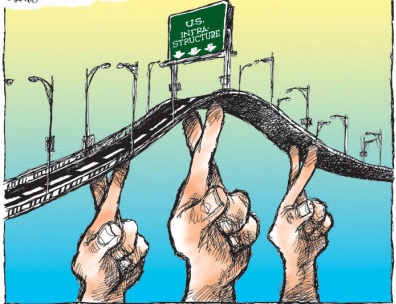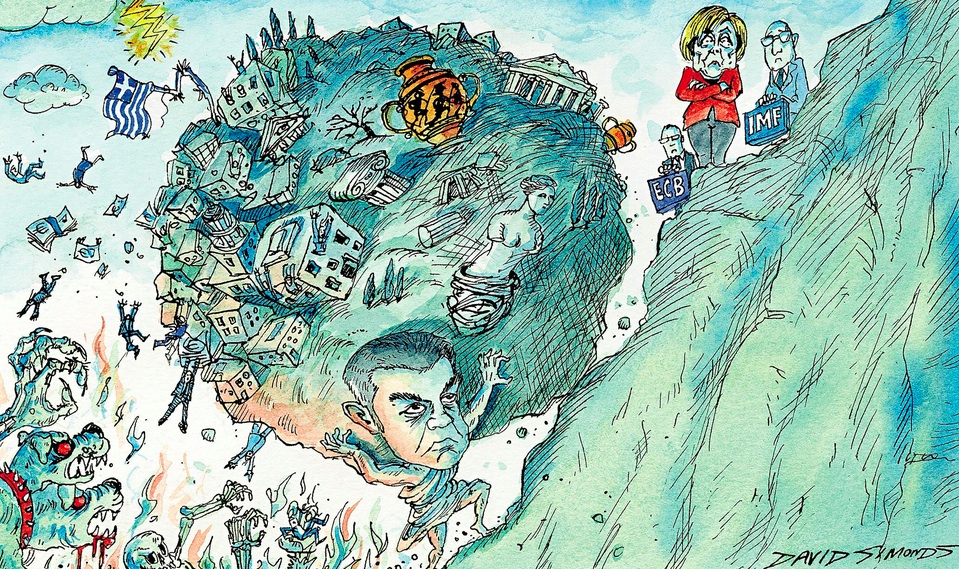Megan Wilson and Peter Schroeder write: Federal Reserve Chair Janet Yellen is upping her outreach to Capitol Hill, and one lawmaker is attracting the largest amount of her attention: Sen. Elizabeth Warren (D-Mass.).
A review of Yellen’s meeting records, obtained by The Hill, shows the Fed chief has had more than twice as many meetings and phone calls with the big bank critic as any other lawmaker.
Starting back in 2013 — the year former Fed leader Ben Bernanke announced he would retire — then-Vice Chair Yellen’s contacts with Congress began to increase. She held dozens of private meetings with senators in the months before and after her Senate confirmation hearing.
However, Warren was among the first lawmakers to approach Yellen in February. Records show the call lasted 30 minutes.
In 2013 and 2014, Warren had two phone calls and five meetings with Yellen. Rep. Maxine Waters (Calif.), the top Democrat on the House Financial Services Committee, had one meeting and two phone calls. Senate Democratic leader Harry Reid (Nev.) also spoke with Yellen three times.
Warren’s outsize presence in Yellen’s daybook is yet another indication that, while low in Senate seniority, the prominent bank critic commands significant attention from influential people.
Yellen, for instance, on Dec. 2 went from an hourlong lunch with Warren at a Federal Reserve dining room to a meeting with Jamie Dimon, the head of JPMorgan Chase.
Warren’s office declined to comment on her frequent meetings with Yellen.
Sarah Binder, senior fellow at the Brookings Institution, said that speaking most often with the Massachusetts Democrat does not a friendship make.
She noted that policymakers at this level have notoriously stringent schedules, leaving little time for pleasant chats.
“They don’t have time for nice meetings,” added Binder, who follows the interaction between the Fed and Congress.
Dennis Kelleher, head of the pro-reform group Better Markets, noted that Warren’s status as a low-ranking lawmaker may actually have made it easier for her to spend more time with Yellen. A former Senate staffer, Kelleher noted that more senior lawmakers often are spread out across multiple committees with wide-ranging jurisdictions.
Warren sits on many committees and is intensely focused on regulatory reform.
“Warren both has the time and interest to spend,” he said. “The more senior you get, the less and less time you have.”
The two last interacted in public when Warren sparred with Yellen.
During a hearing last month, Warren accused one of Yellen’s top advisers, Fed general counsel Scott Alvarez, of being uninterested in implementing some portions of the Dodd-Frank financial reform law, forcing Yellen to defend the longtime Fed employee.
It may not all be adversarial, though. Warren has shown that she can be a pragmatist behind closed doors, according to emails from her first months at the newly formed Consumer Financial Protection Bureau. In the documents, she sometimes took a softer tone with the banks she vocally criticized in public.
Warren was also among a handful of Democratic lawmakers to publicly advocate for Yellen to take over for the Fed instead of Larry Summers, the president’s preferred pick. It is rare for lawmakers to publicly advocate for an individual before the president has made a selection.
She is also no stranger to other financial regulators. Records reviewed by The Hill show meetings with Securities and Exchange Commission Chair Mary Jo White and Richard Cordray, head of the Consumer Financial Protection Bureau that Warren helped create.
Warren has helped to lead Democrats in pushing the Fed to take a tougher stance on new rules brought on by the Dodd-Frank financial reform law, while Republicans have often criticized the central bank’s monetary policy.
Yellen’s frequent meetings with lawmakers are likely an indication of lingering concern or dissatisfaction with the Fed’s work in the wake of the financial crisis, experts say.
In her congressional contacts last year, Yellen met with eight Republicans, typically over breakfast or lunch at the Federal Reserve or at congressional dining rooms on Capitol Hill. Among those dining with Yellen were staunch critics of the Fed, including House Financial Services Committee Chairman Jeb Hensarling (R-Texas) and Sens. John Thune (R-S.D.) and Mark Kirk (R-Ill.). The latter two have co-sponsored legislation aiming to audit the central bank.
Yellen — who opposes the audit — said that while she may not always agree with lawmakers, she wants the Fed to be accountable to Congress.
“We have a wide range of responsibilities, and it’s entirely appropriate for me to testify and be quizzed on a range of topics by members of Congress,” she has said.
Overall, the meetings she held with lawmakers were only a fraction of her total schedule. Yellen held roughly 950 meetings during her first year at the helm of the Federal Reserve, according to a tally by The Wall Street Journal, and only reserved 23 for lawmakers.
“The real criticism might be: why aren’t more people talking to the Fed, rather than why is Elizabeth Warren talking to it so much?” asked Kelleher.







